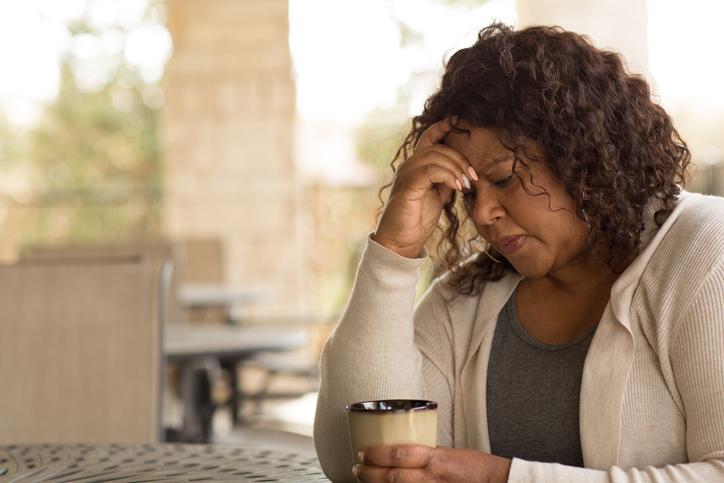
Supported social groups and student belonging: how do I get started?

You may also like
Supported social groups offer students with a shared experience – such as bereavement, exploring LGBTQ+ identities, family estrangement or loneliness – the chance to come together and realise they are not alone. At the University of Bath, we have found that connecting students who share a lived experience is a powerful and effective way to enable peer support in a safe space. Hearing other people ask questions and share relatable stories helps students feel understood and less alone, and the groups can develop into potentially lifelong support networks.
- Break the ice early to build student belonging
- Which specific Covid disruptions impacted motivation and engagement?
- Students learn better on caring campuses – here’s how to create one
We have set up several supported social groups, and they are invaluable for normalising and validating students’ lived experiences. Those attending report feeling heard, comforted and relieved when they are in the company of others who “just get it” and talk their language.
“It’s nice to have friends who don’t consider losing someone an uncomfortable subject”: Esmée
I often get enquiries about how we set up these groups at Bath, and these pointers on how to approach this successfully are based on my experiences.
Getting started setting up supported social groups
It’s brave to even consider attending group support, let alone turn up. So make it as easy for them as you can.
- Keep registration simple via self-referral and a single link on your website that gathers the information you need but isn’t onerous.
- Send a personalised informal welcome email. Acknowledge that students might feel nervous or awkward and provide friendly reassurance. Offer context – why you’re running it, average attendance and what tends to go on in a session. Let them know they can leave at any time and don’t have to speak.
- Always have free drinks and snacks.
- Have activities such as colouring books, fiddle toys or card games on the table to reduce anxiety and awkwardness upon arrival.
- Ensure directions to venues are clear, ideally with visuals.
- Consider diverse needs, in particular neurodivergent students (including those who identify on the autism spectrum regardless of a formal diagnosis), who might find large group environments difficult. Students tend to feed back that they like a maximum of 15 students in a group, with some preferring fewer.
“I really liked that the emails detail what to expect, which reduces my anxiety massively”: anonymous
What do the students want?
A vital question to ask yourself and the students regularly is: what do students want from this group? My experience is this:
- You can never predict what a group will want; it always depends on who shows up. Be ready with fun activities and games, as well as for deep conversations. Prepare to guide the groups but also to feel almost redundant. Be flexible and allow yourself to be led by the students at each session.
- If your group is specifically for students experiencing loneliness and social anxiety, you are likely to be more heavily involved in the facilitation. A dedicated activity such as board games or rock painting is essential (but make participation optional), especially as some students might not feel able or comfortable to speak. These students value the chance to be in an environment – and belong to a community – where that is OK. As these groups might be those students’ only social events, meetings need to be regular (weekly or fortnightly).
- Activities are particularly important when delivering support specifically for men.
- If the group is formed around an experience such as bereavement or estrangement, those students are more likely to lead the group themselves (with prompts), and you will mainly just hold the space, supporting where needed. The loneliness these students live with is in the context of a specific, isolating experience, which many of their peers cannot relate to (as opposed to loneliness resulting from social anxiety). These students are often heavily engaged in busy student life, so monthly groups are ideal.
- I always have arts and crafts available, but these are often background activities and not the main focus.
- If you don’t have capacity to run a regular group, but know a few students are saying similar things about an issue or experience, and communicating their isolation, ask them individually if they’d like to all meet for a coffee. Go along, connect them and they can take it from there.
- Lived-experience groups can also be an opportunity to provide psycho-education (systematically or ad hoc) around topics such as grief and loss or skills development for managing neurodivergence or anxiety and developing self-esteem.
“There is enough structure to alleviate anxiety but enough freedom to gain a little confidence with decision-making and choosing how you do things”: anonymous
“For the first time, I’ve been able to get to know other people my age in a similar situation. When X can be such an isolating experience, this makes all the difference”: Alisha, final year
Collaborate and co-create
- I start most of my groups in an informal and friendly manner, with an invitation for free pizza and the chance to meet others and tell me what support they need.
- Be curious and adaptable, and use the sessions to talk about and reflect on what everyone needs from the sessions. Develop your group together with the students; it should always be their space.
- Be creative, collaborate and seek out diversity to enrich your environment. Explore the expertise in your local community – we have collaborated with individuals and organisations that specialise in certain areas of work (shout out to Grief Kid and the Roman Baths) and have lots more planned. This will enhance a sense of community and belonging, not just to the university but to the world around them.
“Sometimes it can be easy to get lost when you’ve been through something which not many people our age have…Having a safe space like this has made me and so many others feel so welcomed and not alone in such a big community”: Josh, studying BSc in architecture
Keep going!
- You might spend some sessions thinking: “They’re all sat here planning their escape; this was a terrible idea!” This can be particularly pertinent if you have a quiet or anxious group, or in the early days of a new group. Don’t give up and remember that, if people come back, you are probably doing OK.
- Numbers will ebb and flow, but will usually settle over time. Our well-established groups now see eight to 14 students at every session.
- Find comfort with silence and not being able to fix things, welcome any tears and make sure you have tissues.
- Be selective with what you share – provide the information that you know will help the people in that room at the time. Talk with a purpose (and not too much).
- Be ready for group dynamics and student needs to change, and always read the room!
You don’t need to know everything about the issue – the groups are not about us! Our role is to bring students together, to create a warm, inclusive, safe, caring and fun space, to prompt conversations and manage tensions that arise. Our presence as facilitators allows students to focus their energy on connecting with their peers and processing their experiences. One student recently said: “No offence, but I love that I don’t have to make any effort here. You organise it all and I just turn up and chat.”
Hannah Moore is the social interventions lead at the University of Bath.
If you would like advice and insight from academics and university staff delivered direct to your inbox each week, sign up for the Campus newsletter.


